General
iCARTA Workshop Empowers 37 Makerere University Academics, Professionals & Administrators
Published
2 years agoon
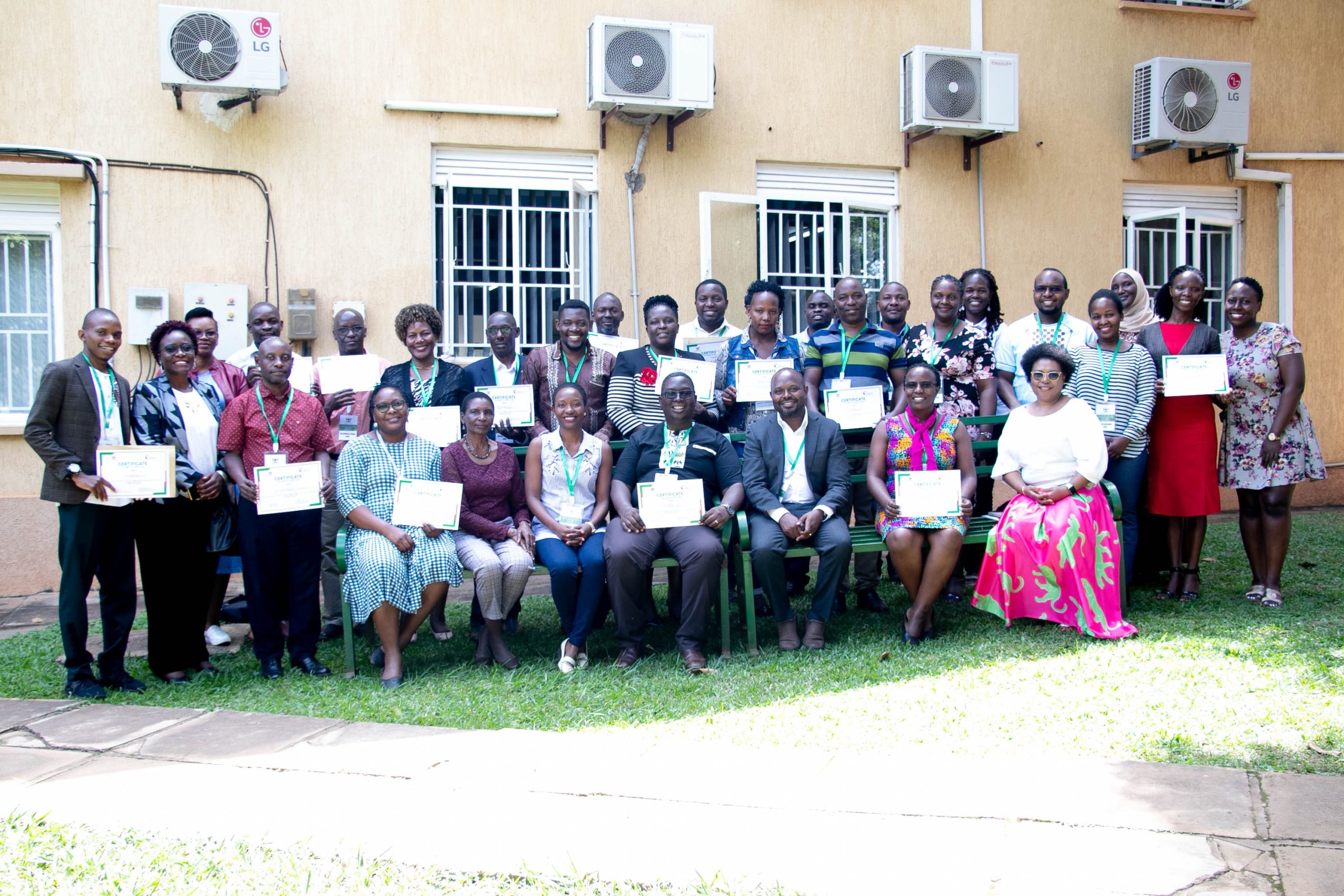
A total of 37 staff drawn from the various units at Makerere University have successfully completed the Training of Trainers (ToT) Academic, Professional and Administrative staff -APAS course, thanks to the Consortium for Advanced Research Training in Africa (CARTA).
In line with CARTA’s mainstreaming initiatives, the weeklong workshop from July 17–21, 2023, aimed to improve institutional responsiveness to graduate training and research and equip trainees to efficiently lead APAS workshops for their units.
The Consortium initially applied for and was awarded a NORHED II grant for the institutionalization of Advanced Research Training in Project Africa in order to institutionalize the gained experiences and best practices for sustainability.
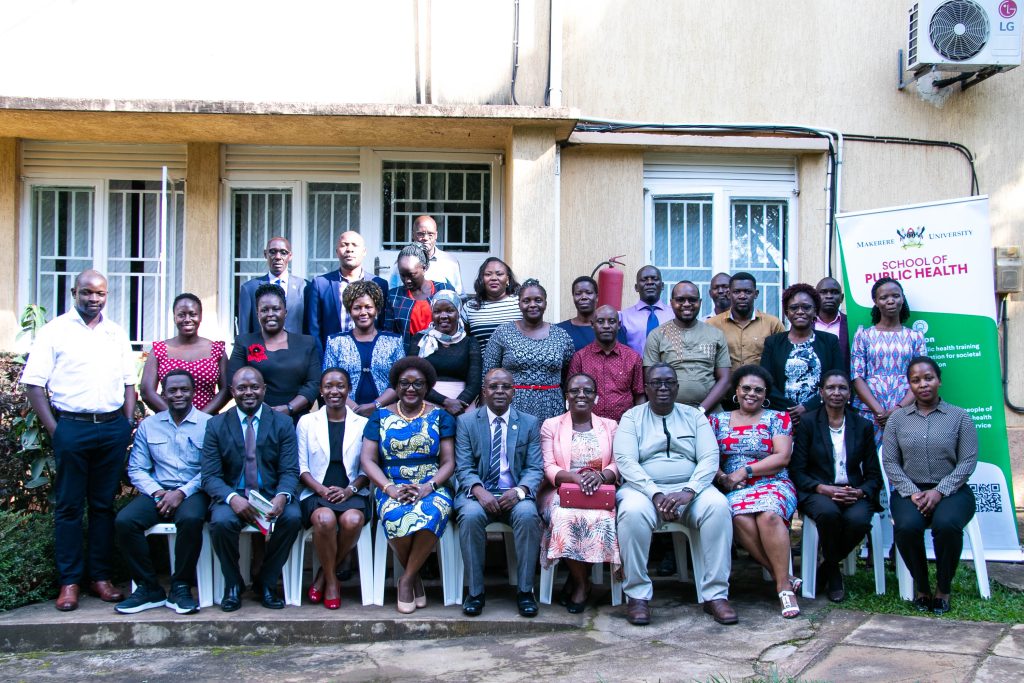
Dr. John Bosco Isunju, a Lecturer at MakSPH and CARTA Focal Person Makerere University remarked; “The APAS workshop is one of these innovations to enhance the capacity of institutional functionaries to create an enabling environment for high quality research and graduate training.”
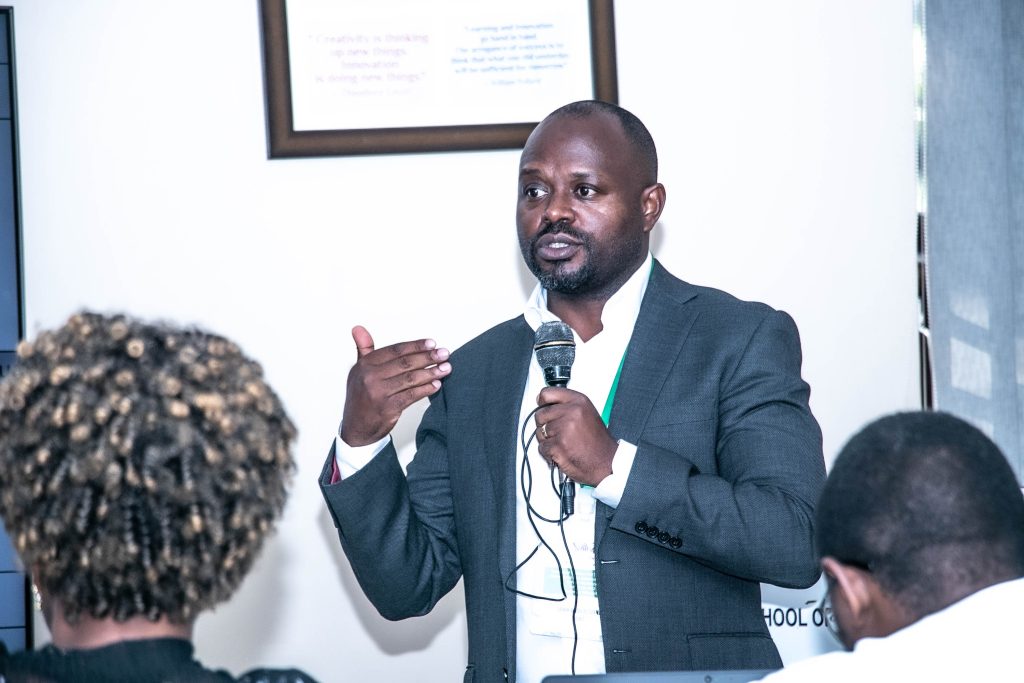
Professor Anne Kisaka Nangulu, an economic historian and the Principal of Bomet, a Moi University constituent college in Kenya, challenged iCARTA trainees to demonstrate good academic citizenship and integrity.
She also gave advice to the trainees on how to lead ethically: “Leading in a manner that respects the rights and dignity of others, knowing your core values, and having the courage to live them in all of your life as well as parts of it in service of the common good are important.”
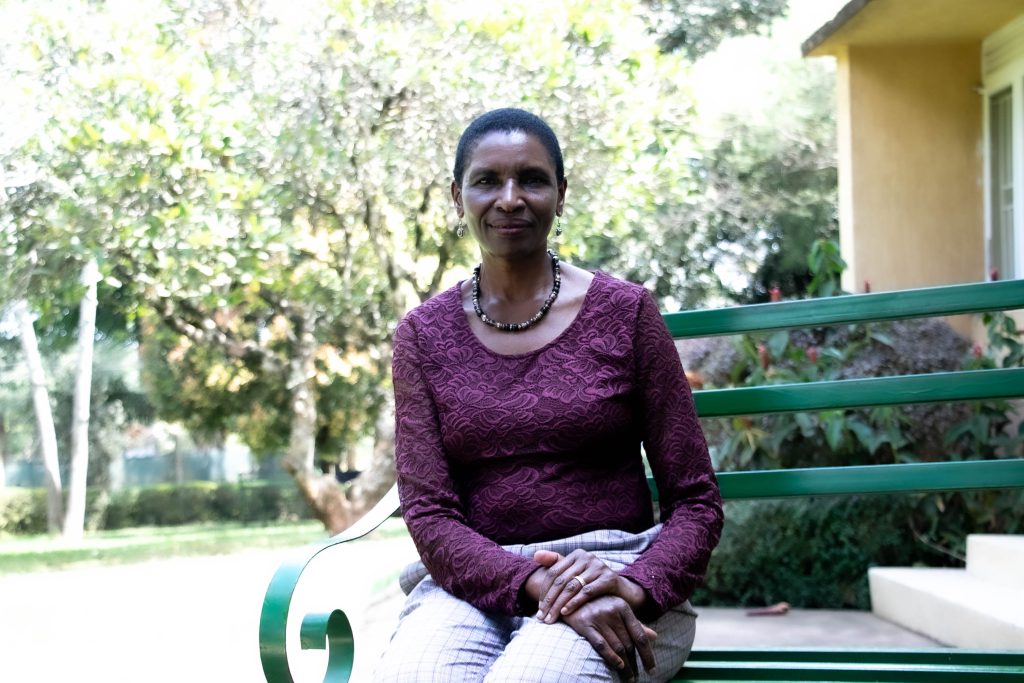
Prof. Nangulu observed, “Whenever we have new graduates, I just feel wonderful. I not only feel nice but I sleep well. CARTA philosophy is to stop brain drain and demonstrate to the rest of the world our independence. Just remember there’s is no institution without people as you go about your day. Please make a tiny adjustment where you are. I believed that we all have great potential. Although I’ve never believed in teamwork, I do believe in group work. Let this APAS be a community that exists. Change using this platform.
Dr. Daphney Nozizwe Conco, a Senior Lecturer at University of the Witwatersrand School of Public Health and CARTA facilitator urged the ToT graduands to; “Use this platform for connecting and enhancing the CARTA vision. What pays us is the impact. You can’t quantify it. Most of the time, such a training is a stepping stone. Such moments are overwhelming. Being in Makerere University is a moment of pride as South African. Historical moments.”
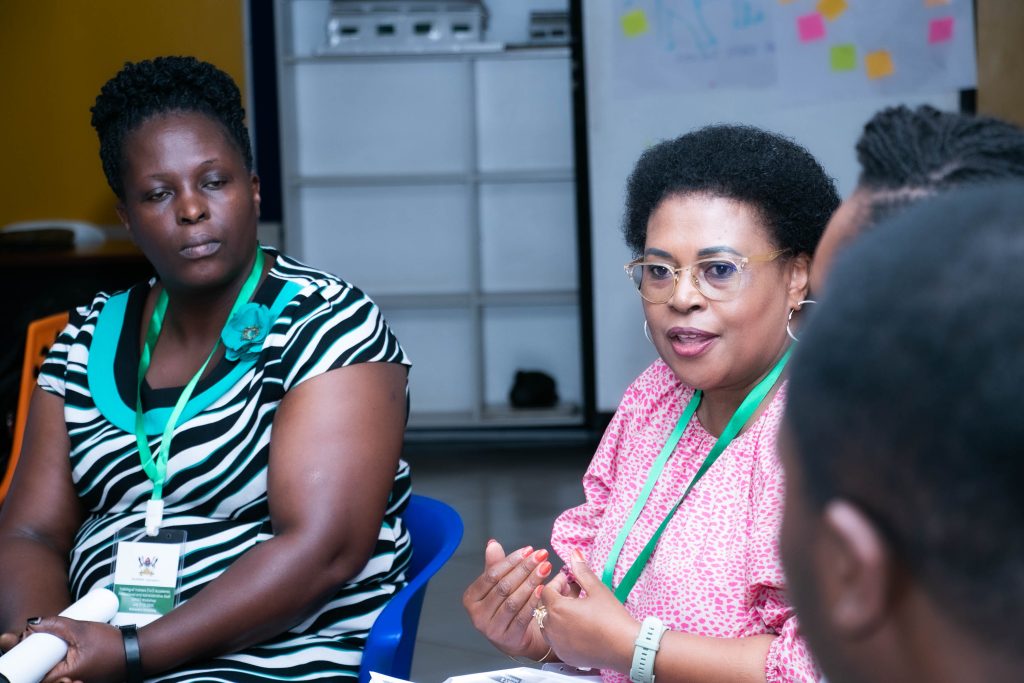
Dr. Rhoda Wanyenze, Professor and Dean, MakSPH hailed CARTA for the opportunity to train the staff citing that Makerere University cannot improve graduate training when its support system improve including the administrators is not improved.
Professor Wanyenze urged the trainees as strong support system of the university to work with diligence and ensure the university stakeholders good experience and services from the university for improved relations.
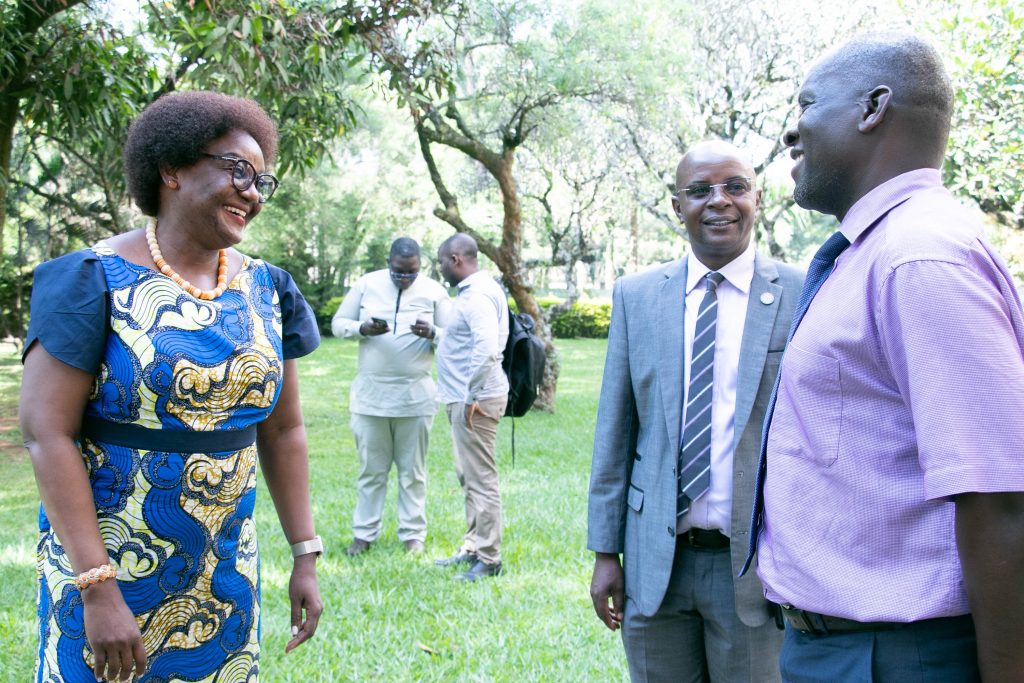
“How can we provide quality support system to our students so that they can come to us again? We like to create alumni networks and we want them to engage with us, contribute the money. Are we sure they want to see us or look in our eyes? You are supporting your future collaborators when you are supporting your students. There has to be quality, quality is more of perception. What people feel about what we do is the quality that lasts in their minds. Forget about the standards, people will always remember how they are treated whenever they interact with us,” said.
Professor Wanyenze thanked the organizers of the training under CARTA for supporting Makerere University towards realizing its ambitious target of becoming a “research-led” institution with a multi-faceted research agenda.
“We are talking instutionalisation. CARTA was helping us to do what we were supposed to do. It is excellent because it talks about training people locally. CARTA is a great program for me in many ways. I hope we can institutionalise some of those good practices,” she noted.
According to Professor Wanyenze, every time universities have policy shifts they tend to focus on professors but not both the professors and the support systems.
“The biggest challenge that we have in our graduate training in most of the universities in Africa that I know; is support systems. We are not going to improve graduate training in Makerere University unless we improve support systems. Everybody that comes in contact with or interfaces with graduate students has a role to play in graduate training. In terms of ensuring training quality and an enjoyable time at university. How do you handle the students when they come to you as finance officers, what about the administrators, who delays submission of the dissertation books when they have been submitted? We need to put the systems right and start looking at a student as a human being. We have to interface with the students and engage them as human beings,” observed Prof. Wanyenze.
Professor Edward Bbaale, Director of Research and Graduate Training at Makerere University, stressed the importance of providing students with excellent experiences during their time at the university. He highlighted that these students could become future leaders, and their experiences could have a significant impact, potentially holding consequences if mishandled.
“The current Permanent Secretary Ministry of Finance/Secretary to the Treasury was my student in economics through his undergraduate degree. Still, when he came back for his master’s degree, I taught him and also supervised his research, but I didn’t know that this young man would at one time be the one making decisions on how much money comes to Makerere University,” said Prof. Bbaale.
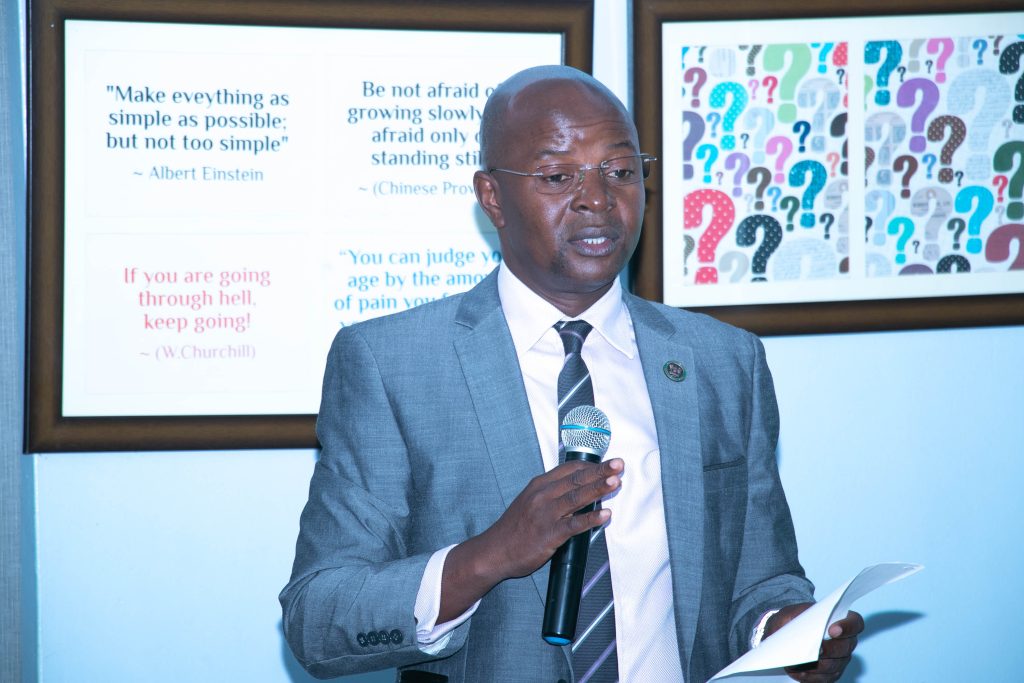
“I don’t know how I treated him as a student. Recently, the undersecretary in the ministry of finance, who is now a council member, was our PhD student in economics, and I don’t know how we treated him. Those two people combined, if they are to fail the university in terms of financing as a payback, can Both of them were our students in the same environment, but we really thank God that maybe they are working in our favor. One of them is a council member making critical decisions,” he added.
Huzaifah Mutyaba, an administrator at MakSPH, committed to implementing the APAS program after receiving facilitator training. “I have met a lot of new friends. We are going to meet soon, and we shall be discussing how to support our other colleagues to support graduate training and research at Makerere University,” Mutyaba said.
Jackie Norah Nanteza, an iCARTA trainer, emphasizes that quality goes beyond standards; it’s about how the recipients of your services perceive them. “This has been a very wonderful group to facilitate speaking sincerely. Continuously building on capacity and enthusiasm, you feel like there is power inside you. Get that energy and commit to doing better things.”
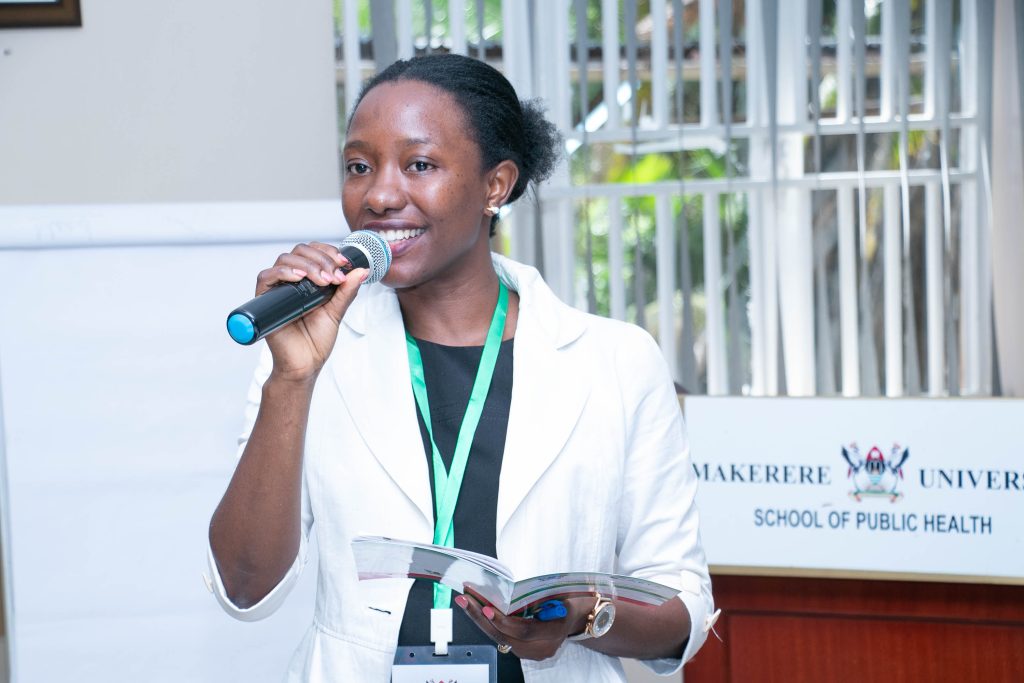
Alison Annet Kinengyere, a Library and Information Scientist at Sir Albert Cook Medical Library, commended the participants for their dedicated attendance throughout the five-day course. “I am impressed by the participants’ commitment. At Makerere University, for participants to be available for the five days is a great thing, and I congratulate all of you on your successful completion of this course.”
Twenty years ago, CARTA was formed to address a critical gap in research capacity in African public universities through a suite of interventions to enhance individuals’ and institutional capacities for high quality research at eight institutions.
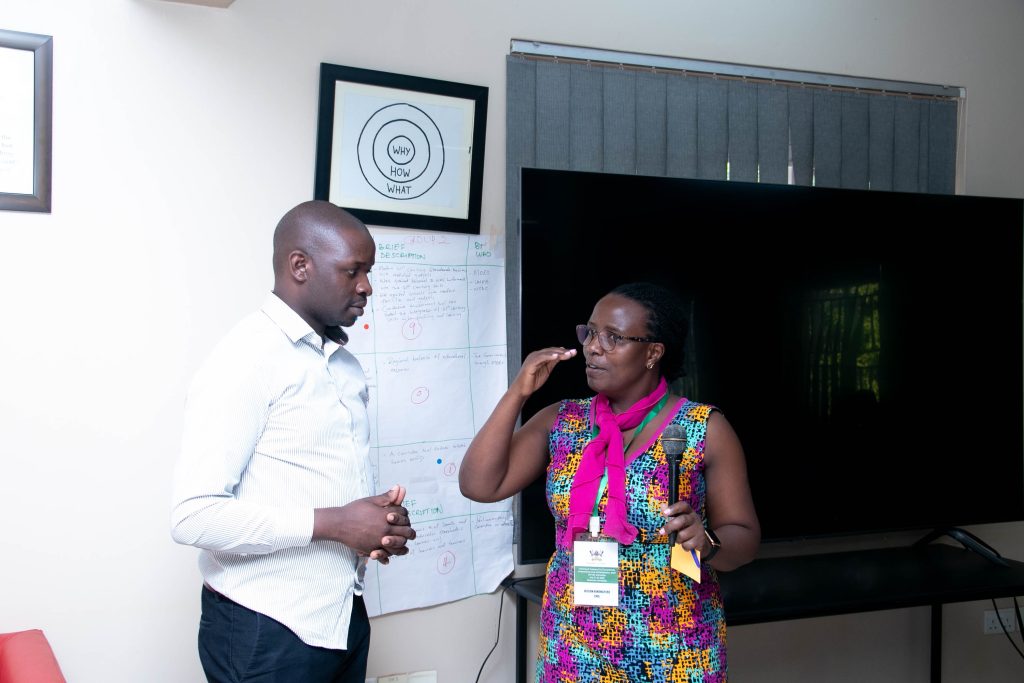
The Consortium composed of African (Malawi, Uganda, Rwanda, Kenya, Tanzania, Nigeria, and South Africa) and non-African partner universities and institutions from Norway, Sweden, Switzerland, and the UK sought to produce high-quality early career researchers (ECRs) who will, in turn, become research leaders enhancing the engagement between the CARTA community (ERC’s, supervisors, graduates) and society to influence policy and programmatic change to improve long-term health outcomes.
Dr. Isunju observes that CARTA trains doctoral and post-doctoral students and other institutional functionaries that support research and graduate training. “So far 22 PhD fellows have graduated and another five in the pipeline to graduate soon. We are very grateful for what CARTA has done.”
CARTA not only trains doctoral students but also provides support to various university staff members, including administrative, professional, and academic roles. APAS was initially targeted at administrative and academic staff. It was later expanded to include crucial professional roles like communications, procurement, and registrars, recognizing their pivotal role in advancing graduate education and research within our institutions.
The first APAS ToT which was held at Makerere University where CARTA trained three people from each of the main institutions in Uganda, Nigeria, Ghana, Wits, Malawi, Nairobi -Moi and University Rwanda. who have since become our local trainers. In Makerere University, Jackie Nanteza, Dr. Andrew Tamale and Dr. Alison Kinengyere benefited from the initial training.
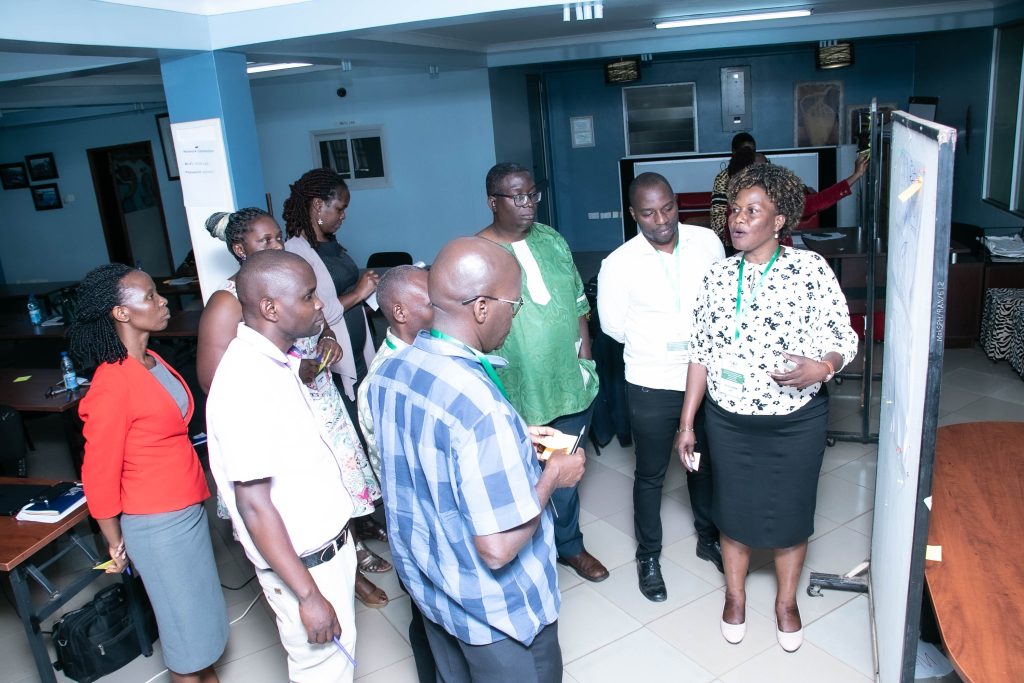
According to Prof. Bbaale, Makerere University’s strategic plan 2020-2030 aims at transforming a university into a research led institution and that one of the building blocks for this realization is to increase graduate enrolment and knowledge production that responds to national, regional and global developments and challenges.
He highlighted that Makerere University is determined to have the share of graduate students at 30% by 2030 many of which must be international students. “The School of Public Health and the entire College of Health Sciences has already gone over and above this target but definitely your performance is dampened by the rest of the units in the university taking us to around 12%,” Prof. Bbaale said.
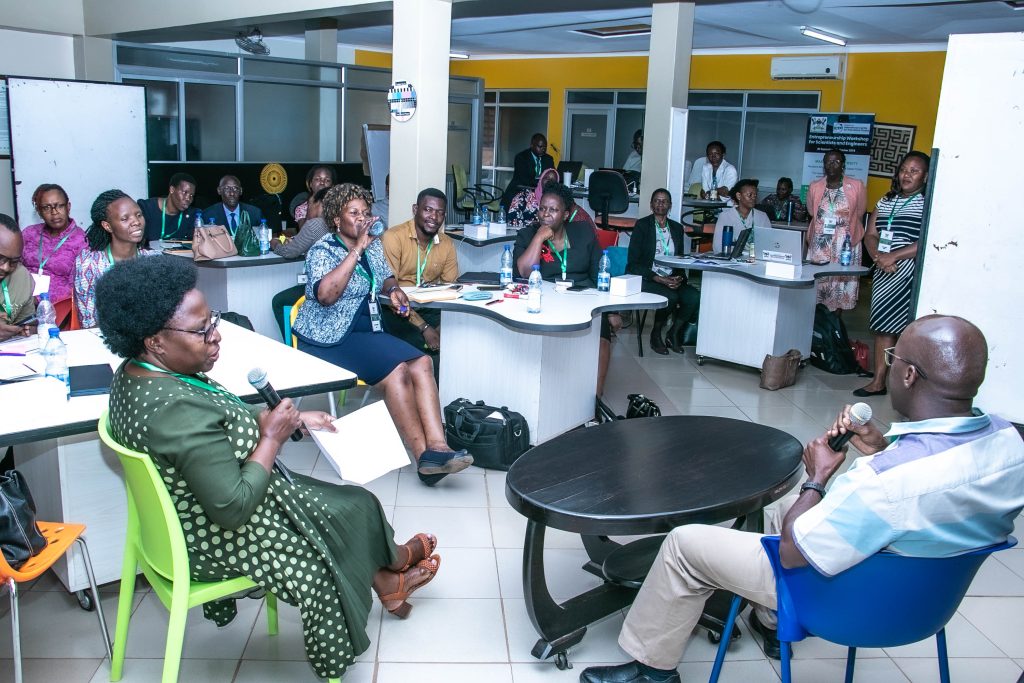
He added that; “We want to internationalize as much as possible, out of the 30% target for graduate students, we want to have 10% international students but currently we are around 2%. The second building block of our strategic plan is establishing research entities that leverage largescale multidisciplinary and multi-institutional research activities. The third block is packing and marketing of research outputs for appropriate adoption to impact communities. Makerere University through UNDP has established an innovation hub in an effort to package the research outputs and innovations.”
Dr. Bbaale emphasizes DRGT’s commitment to graduate education and research. “Collaboration with various units continues to improve,” he says. The number of PhD students enrolled and graduating has steadily risen, and despite resource limitations, every department at Makerere can at present supervise doctoral students.
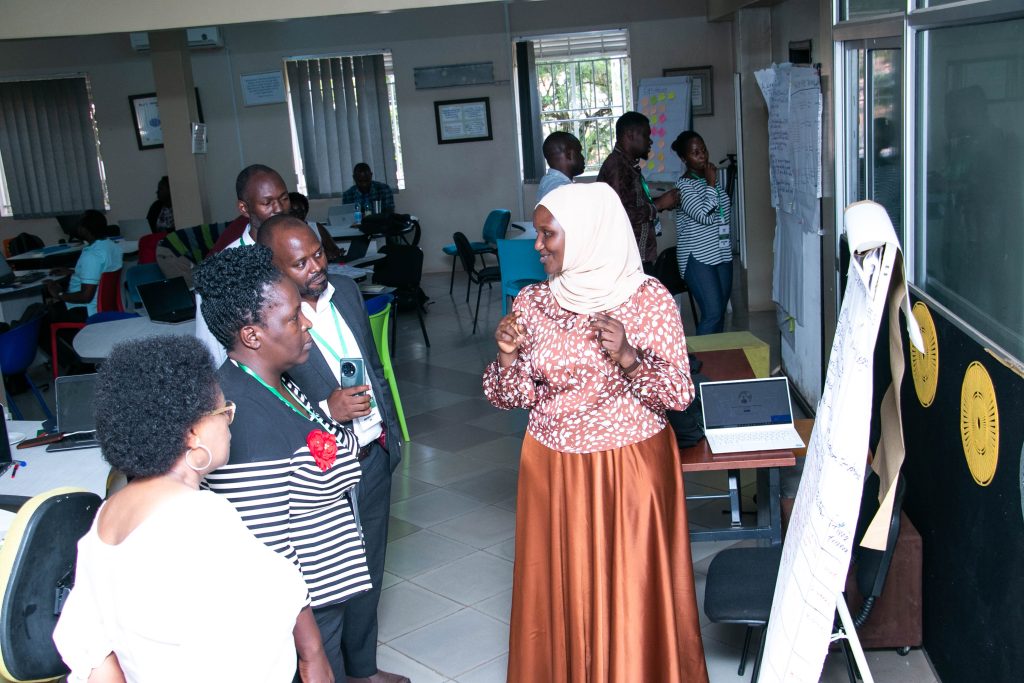
Prof. Bbaale is enthusiastic about participants becoming trainers since it is in line with Makerere University‘s ambition on being a research-led institution. The program boosts facilitators’ abilities, addressing PhD training capacity.
“It is interesting to note that the ToT program seeks to enable trainees to effectively create a multiplier effect in their respective units. This model is quite unique. It will build a critical mass of trainers with a requisite capacity to manage doctoral studies in respective units. I would like to congratulate the MakSPH for taking lead in this front and for building synergies with DRGT as we strive to take graduate training and research at our university. I would like to appreciate the CARTA secretariat that combined effort with Makerere University that led to the grant that is enabling all these activities to take place. I would like to appreciate the vice chancellor for the able and visionary leadership that has identified,” he said.
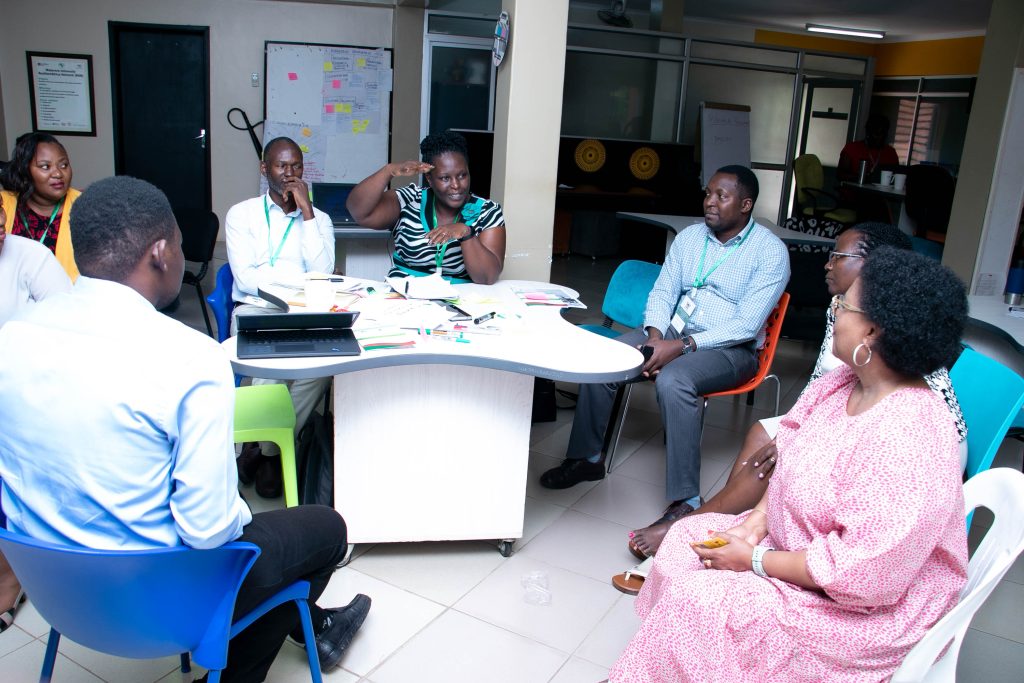
You may like
-


Simplicity, Service & Scholarship: Hallmarks of Professor Livingstone Luboobi’s Legacy
-


EfD-Mak Holds 2nd Advisory Board Meeting: Charts Path for Growth
-


Public University Legal and Accounting Officers Trained on Governance and Compliance
-
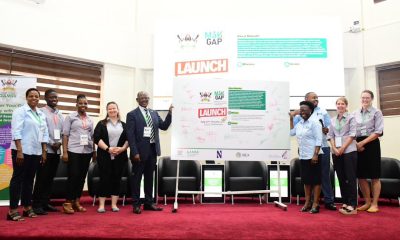

Launching The MakGAP
-


Celebrating the Life of Prof. Livingstone Sserwadda Luboobi
-


Fare Thee Well Prof. Luboobi
General
Simplicity, Service & Scholarship: Hallmarks of Professor Livingstone Luboobi’s Legacy
Published
9 hours agoon
July 18, 2025By
Eve Nakyanzi
On Wednesday 16th July 2025, Makerere University lost one of its most cherished sons, Professor Livingstone Sserwadda Luboobi. Described as a mathematician, academic leader, and humble servant, Professor Luboobi devoted more than five decades to the university, rising through the ranks to become Vice Chancellor, and leaving a legacy defined by simplicity, service, and scholarship.
Born to Lameka Serwadda and Sanyu Serwadda on 25th December 1944 in Mitondo, Kalisizo, Kyotera District, Professor Luboobi’s academic career begun as a third-year student at Makerere and continued with unwavering loyalty until his passing. His life’s work reflected not only a commitment to mathematics but also nurturing generations of scholars and leaders across Uganda and beyond.
A funeral service was held in his honour at St. Francis Chapel, Makerere University on 18th July 2025. It was a moment of solemn remembrance and heartfelt tribute. Rev. Canon Dr. John Senyonyi delivered the sermon titled “Only God Knows,” reminding mourners of the mystery and grace of life’s journey. Rev. Canon Geoffrey Byarugaba represented the Kampala Diocese at the service, while former St. Francis Chaplain, Rev. Dr. Canon Johnson Ebong thanked Professor Luboobi for spearheading the Chapel’s expansion. Friends, colleagues, and family members filled the chapel, joined in mourning but also in gratitude for a life that had deeply touched theirs.

Mrs. Lorna Magara, Chairperson of the University Council, spoke movingly about Professor Luboobi’s faithfulness, likening his life to the biblical call in Mark 10:43, “Whoever wants to become great among you must be your servant.”
In his condolence message, the Vice Chancellor, Professor Barnabas Nawangwe, hailed Professor Luboobi as a visionary leader whose legacy is deeply woven into Makerere’s identity as a research-led institution. He credited Professor Luboobi with laying the groundwork for a culture of inquiry—championing graduate programmes, encouraging doctoral training, and fostering international collaborations that strengthened the university’s research profile. “He believed in building systems, not just structures,” noting that many of Makerere’s current research policies stem from his leadership. Even in retirement, Professor Luboobi remained a source of wisdom and guidance, quietly shaping the future of the university he so deeply loved.
Speaker after speaker painted a portrait of a man who led not by pomp, but by quiet strength and deep conviction. The Principal, Professor Winston Tumps Ireeta, speaking on behalf of the College of Natural Sciences (CoNAS), described Professor Luboobi as a foundational figure whose influence is deeply etched in the structures and spirit of the college. He spoke with emotion about Luboobi’s unwavering commitment to academic integrity and his belief in the power of mentorship.

“He was not just a mathematician,” Professor Ireeta said, “he was a visionary who understood the soul of the university. Even in retirement, he remained an advisor, a guide, and a quiet force of wisdom.” He concluded by saying that the college would continue to draw from his example as it navigates the future of science and innovation in Uganda.
Professor Luboobi’s illustrious career at Makerere University included serving as Head, Department of Mathematics from 1990 to 1991. The current Head of Department, Dr. Ismail Mirumbe remembered him as a pillar in the teaching and development of mathematics in Uganda
Professor John Mango, who served as Head, Department of Mathematics during Professor Luboobi’s term as Vice Chancellor from 2004 to 2009 described him as a towering figure of integrity and principle, someone who not only upheld the highest standards of academic conduct but insisted that others around him do the same. “He was a pillar in the department,” Prof. Mango remarked, “and his moral compass was unwavering.”

He recalled instances where Professor Luboobi made firm decisions, including terminating contracts when integrity was compromised, setting a tone that shaped the department’s reputation for honesty and excellence. Even as Vice Chancellor, he remained deeply involved in the department’s affairs, teaching, supervising students, all the while handling top administrative duties punctually. Prof. Mango spoke with great admiration of a man who led by example, mentored many, and whose contributions to mathematics education, research, and policy-making continue to shape the future of the discipline in Uganda and beyond.
According to an article from 1990 written by Dr. Vincent Ssembatya and Andrew Vince at the University of Florida, the Uganda Mathematical Society (UMS), which was formally established on 25th November, 1972 has since inception enjoyed major support from Makerere University and Kyambogo University in terms of infrastructure and leadership. Professor Paul Mugambi, who was also present at Professor Luboobi’s funeral service was elected first president of the UMS. Dr. Saul Nsubuga from the Department of Mathematics represented UMS at the service, honouring Professor Luboobi’s pioneering role in the discipline.
The service also featured tributes from close friends and family. Loved ones shared stories of a man who remained grounded no matter how high he rose, a man who valued relationships and walked closely with his faith. His children and grandchildren remembered him as a father who was ever-present, a listener, and a source of steady guidance.

Professor Daniel Kibuule, son of the late Professor Luboobi and Dean, Faculty of Health Sciences at Busitema University, delivered a deeply personal tribute that painted a full portrait of his father’s life, values, and final days. He expressed gratitude to the University leadership, family, friends, and medical professionals who stood with them during a challenging period. He particularly thanked his siblings, Dr. David Kimera and Dr. Irene Nakiyimba for their unwavering role in caring for Professor Luboobi through illness.
He spoke of a man who, despite great academic accolades, remained deeply humble and committed to discipline, simplicity, and faith. From instilling punctuality and responsibility to ensuring his children charted their own paths, none bearing his surname “Luboobi”, Prof. Luboobi was intentional in every lesson he passed on. Kibuule recalled his father’s insistence on being at home even in his final moments, his strong connection to Christ, and his quiet strength despite his failing health.
Former students and mentees echoed the same sentiments, of a teacher who was generous with his time and invested deeply in others’ growth. The community that gathered was not only there to grieve but to celebrate the quiet legacy of a man whose example continues to live on.
Among the mourners were public figures and leaders, including Hon. Abed Bwanika, Member of Parliament for Kimanya-Kabonera, Hon. Nyombi Thembo, the Executive Director Uganda Communications Commission, and Hon. Dr. Ham-Mukasa Mulira, former Minister of ICT, among others.
In his passing, Makerere University has lost a pillar, but his life reminds us that greatness lies in consistency, in humility, and in service to others. Professor Luboobi’s memory will continue to live on in the minds he shaped, the systems he built, and the values he embodied. He ran his race with grace.
The Writer is a Volunteer in the Public Relations Office, Makerere University
Please click the embedded video below to view the service livestream
General
Public University Legal and Accounting Officers Trained on Governance and Compliance
Published
2 days agoon
July 17, 2025By
Eve Nakyanzi
Legal and accounting officers from public universities across Uganda have convened, for a high-level training workshop organized by Makerere University. The three-day training, taking place from July 16th to 18th, 2025, is aimed at strengthening legal frameworks, improving institutional governance, and ensuring compliance with public finance and procurement laws within higher education institutions.
Ms. Lorna Magara, Chairperson of the Makerere University Council and Guest of Honour at the opening session, commended the initiative as timely and necessary. She addressed the growing backlog of court cases affecting Makerere and other public universities and outlined measures already taken to mitigate legal risks. These include the establishment of a Legal Rules and Privileges Committee and the Directorate of Legal Affairs, part of a broader strategy to improve legal compliance and foster good governance.
Representing the Vice Chancellor, Prof. Winston Tumps – Ag. Deputy Vice Chancellor (Finance and Administration), described the training as both strategic and practical. “It is imperative that we learn from each other, especially in how we handle employee litigation and institutional legal risks,” he remarked. He added that the program is designed to promote experience-sharing across universities and enhance collective institutional growth.

In his address, Mr. Yusuf Kiranda, University Secretary at Makerere University, emphasized the urgent need for robust legal oversight and more effective case management mechanisms within public universities.
The training featured a keynote address by the Attorney General of Uganda, Hon. Kiryowa Kiwanuka, who provided critical insights into legal expectations for public institutions. He warned that failure to heed legal advice could result in personal liability for accounting officers, citing a precedent involving the Uganda Cancer Institute. “Universities must consult the Attorney General’s chambers before entering into major contractual obligations,” he advised, urging legal officers to document decisions meticulously as proper record-keeping forms the first line of defense in legal disputes.

Hon. Kiwanuka further discussed the government’s ongoing efforts to recentralize legal services to ensure alignment with the Attorney General’s office. He cautioned in-house counsel against becoming overly entangled in decision-making processes, stressing the need for objectivity. Other key issues he addressed included contract approvals, misuse of Memoranda of Understanding (MoUs), and lapses in procurement processes, particularly at the close of financial years.
Participants also benefited from insights by Hon. Justice Musa Ssekaana of the Court of Appeal, who offered an in-depth analysis of judicial review and its significance in promoting lawful, transparent university governance. He called on university legal officers to act with clarity, timeliness, and accountability.
Lady Justice Joyce Kavuma, Judge of the High Court, delivered a comprehensive presentation on dispute and claim management involving public universities. She addressed emerging trends in civil litigation, emphasizing the importance of due process, transparency, and clear communication in resolving employment, student, and contractual disputes. Drawing on real case examples, she urged institutions to strengthen internal systems, embrace participatory governance, and adopt regional best practices to minimize litigation and protect institutional reputation.

The training reflects a shared commitment among public universities to build a more accountable, legally sound, and strategically aligned higher education system in Uganda. Through peer learning and collaboration, participating institutions aim to reduce litigation, enhance institutional autonomy, and uphold the rule of law.
Participating universities include Makerere University, Kyambogo University, Mbarara University of Science and Technology, Busitema University, Mountains of the Moon University, and Lira University.
The training concludes on July 18th 2025, with sessions focusing on employment dispute management in public universities and the implications of recent PPDA Appeals Tribunal decisions on procurement and disposal practices within public entities.
General
Celebrating the Life of Prof. Livingstone Sserwadda Luboobi
Published
2 days agoon
July 17, 2025By
Mak Editor
A Visionary Leader, Seasoned Mathematician, & Humble Academician
It is with profound love and respect that we celebrate the life of Prof. Livingstone Sserwadda Luboobi, a distinguished scholar, transformative leader, and beloved Vice Chancellor Emeritus of Makerere University. His legacy is woven in the fabric of African higher education, marked by intellectual brilliance, unwavering commitment to academic excellence, and a life of selfless service.
A Life of Purpose and Vision
Prof. Luboobi was more than a mathematician. He was a visionary, whose work transcended equations and research papers. Serving as Vice Chancellor from 2004 to 2009, he led Makerere University through a critical period of growth and transformation. Under his guidance, the university expanded its reach, strengthened its academic rigor, and embraced innovation and reform. His calm demeanour and principled decision-making earned the admiration of students, faculty, and peers alike.
Prof. Luboobi was deeply committed to nurturing talent and fostering intellectual curiosity, leaving an indelible mark on the institution’s culture and future direction.
Beyond Uganda, Prof. Luboobi’s influence resonated across the global academic community. He was a passionate advocate for the transformative power of science and education, often speaking at international forums and collaborating on research that bridged continents and disciplines. His work helped elevate the profile of African scholarship on the world stage.
His legacy endures not only in the impressive body of work he left behind but also in the countless lives he touched – students, educators, and leaders who continue to draw inspiration from him.
Academic and Leadership Journey at Makerere University
An illustrious alumnus of Makerere University, Prof. Luboobi graduated with First Class Honours in Mathematics, laying the foundation for an extraordinary academic journey. He pursued further studies at the University of Toronto (MSc in Operations Research, 1971-72) and the University of Adelaide (PhD in Biomathematics, 1978–80). His scholarly journey spanned prestigious institutions worldwide, including UCLA, the University of Bergen, and the University of Dar es Salaam, establishing him as a scholar of global repute and a proud ambassador of African intellectualism.
Prof. Luboobi’s service to Makerere begun in 1970 as a Special Assistant-remarkably, while still an undergraduate, rising through the ranks to full Professor in 1997. He served as Head of Department, Dean of the Faculty of Science (1994–2001), and later became the university’s first elected Vice Chancellor. His tenure brought new energy to institutional leadership, characterized by transparency, inclusivity, strategic direction and accountability.
Strategic Reforms and Institutional Impact
A true architect of transformation, Prof. Luboobi chaired the development of Makerere’s first locally-conceived Strategic Plan (1990–91). He was instrumental in securing a UGX30 billion grant from NORAD in 1999, which revitalized key academic areas such as computing, gender studies, and food science. He co-founded the Makerere University Private Sector Forum, bridging the gap between academia and industry, and strengthening alumni engagement and resource mobilization.
Pioneering Biomathematics and Mentorship
As one of Africa’s pioneering biomathematicians, Prof. Luboobi introduced mathematical modeling to tackle real-world problems in epidemiology, ecology, and operations research. His scholarly contributions – over 150 publications – reflect the depth and breadth of his research. Yet, perhaps his most lasting impact lies in mentorship: he supervised more than 35 PhD and over 50 MSc students, including Makerere’s first female PhD graduate in Mathematics, nurturing a generation of scholars and leaders.
Prof. Luboobi’s Contribution to the Internationalization of Makerere University
Prof. Luboobi played a pivotal role in advancing the international profile of Makerere University. Demonstrating remarkable personal commitment, he utilized his own resources to support the establishment of the University’s International Office. This strategic initiative laid the foundation for a more structured and effective engagement with global academic institutions, development partners, and international students. As a result, Makerere University significantly enhanced its global footprint, forming numerous international collaborations and attracting increased academic and research opportunities from abroad.
In addition to his contributions to internationalization, Prof. Luboobi was also instrumental in revitalizing the University’s Public Relations Unit. Under his guidance, the unit adopted more proactive and professional communication strategies, which greatly improved the institution’s public image. This, in turn, fostered greater public trust and strengthened the university’s reputation both locally and internationally. His visionary leadership in these areas has had a lasting impact, positioning Makerere University as a leading institution in East Africa and beyond.
Global Recognition and Enduring Legacy
Prof. Luboobi’s contributions earned him widespread recognition. In 2008, the University of Bergen awarded him an Honorary Doctorate for his role in internationalizing academia. Makerere University honoured him with a Lifetime Achievement Award in 2013, and the Government of Uganda conferred upon him a National Gold Medal for his unwavering service to education and national development.
Even after retirement, Prof. Luboobi remained an active contributor to academic life-lecturing, supervising, and advising the university.
A Lasting Light in African Academia
Prof. Livingstone Sserwadda Luboobi’s life was a model of scholarship anchored in service, leadership tempered with humility, and an unshakable belief in the power of education. He leaves behind a vibrant academic legacy and a trail of inspired minds. His contributions will continue to shape Makerere University, Uganda, and the global academic community for generations to come.
We extend our heartfelt condolences to his family, colleagues, and the entire Makerere University community during this difficult time.
May his soul rest in eternal peace.
Trending
-

 General2 weeks ago
General2 weeks agoRe-advert: Admission to Undergraduate Programmes 2025/2026
-

 General1 week ago
General1 week agoRe-Advert for Applications for Diploma and Certificate Training
-

 General5 days ago
General5 days agoMakerere University Fees Waiver for 40 First Year Female Students 2025/2026
-

 General2 weeks ago
General2 weeks agoPress Statement on Ranking
-

 Health1 week ago
Health1 week agoCall for Applications: Responsible Conduct of Research (RCR) Training Course
